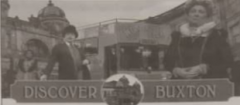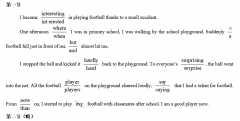浙江金丽衢十二校2016届第一次联考英语试题及答案(3)
A. explanation for her buying new shoes B. introduction of the topic of the passage
C. description of her satisfaction with life D. suggestion on how to win friends
42. Paragraph 2 is mainly about .
A. where I can find good friends B. when I should say good-bye to my friends
C. why I don’t like some of my friends D. how I deal with those good friends
43. Which of the following friends is a “Jane”?
A. He/She keeps a balance between life and work and lives an energetic life
B. He/She always lives up to your expectation and keeps his/her words
C. He/She has been together with you in difficulties and sufferings
D. He/She has been honest enough to point out your mistakes in time
44. The underlined word “indebted” in Paragraph 7 is closet in meaning to .
A. interested B. embarrassed C. guilty D. grateful
45. The purpose of the passage is to .
A. share with you the writer’s opinions on how to make friends
B. pour out the writer’s concerns about some friends
C. express the writer’s gratitude to her true friends
D. convey some common embarrassing conflicts with friends
B
Whether you’re in the mood for poetry, essay, or fiction—the recommendations below include some examples of classics perfectly suited for November!
“Mont Blanc” (1817) by Percy Shelley
In this, one of Shelley’s most famous poems, the poet is investigating problems of mental freedom and self-positioning. The awe and wonder of nature, as a projection(投影) of the mind’s own limitless power, is an appropriate theme for this time of year.
We can, perhaps, think about our place in the universe as we watch the leaves turn, listen to the wind blow, and prepare for the “snowy, and peaceful” moments to arrive in coming months.
“Such as a feeble brook will often assume,
In the wild woods, among the mountains lone,
Where waterfalls around it leap for ever,
Where woods and winds contend, and a vast river
Over its rocks ceaselessly bursts and raves.”(Lines 7-11)
“Walden” (1854) by Henry David Thoreau
“Walden” combines autobiography with social critique(社会批判). It is partly a memoir(回忆录) of Thoreau's experience living in a place not too far from town. The book explores themes of self-reliance, simplicity, and progress while criticizing consumerism(用户至上主义) and contemporary Western culture. We might wonder about reading a book about “living in nature” at a time when the months are becoming colder, but the “comfort” of Walden, the reflection as well as the ease it inspires are perfect for this time of year.
“I went to the woods because I wished to live deliberately, to front only the essential facts of life, and see if I could not learn what it had to teach, and...”
“The Eve of St. Agnes”(1820) by John Keats
“The Eve of St. Agnes” is a long poem. It was written in 1819 but not published until 1820. It is widely considered to be amongst his finest poems and was influential in 19th century literature.
Although the poem refers to the evening before St. Agnes’s day (January 20th), readers (especially in the northern hemisphere) may appreciate experiencing this one on a chilly night, perhaps one of the first of the mid-autumn season.
“ST. AGNES’ Eve—Ah, bitter chill it was!
The owl, for all his feathers, was a-cold;
The hare limp’d trembling through the frozen grass,
And silent was the flock in woolly fold…”
“Oliver Twist” (1838) by Charles Dickens
There’s just something about Dickens that makes you want to read him in the autumn. It may be too early for a book like “A Christmas Carol” (1843), but “Oliver Twist” is perfect for late-November reading. The story introduces us to a sickly orphaned boy living in an English workhouse. Oliver, weak and hungry, dares to ask for more food. For this insolence, he’s exiled and must suffer various hardships before finally finding solace with a caring family.
“Although I am not disposed to maintain that being born in a workhouse, is, in itself the most fortunate and enviable circumstance that can possibly befall a human being, I do mean to say that in this particular instance, it was the best thing for Oliver Twist that…”
46. According to the passage, reading “Mont Blanc” can help us ________.
A. learn something about the miserable life of an orphan
B. appreciate experiencing the atmosphere of chilly nights
C. try to find our own position in this world
D. inspire us to experience living simply and easily
47. Which of the following statements is TRUE according to the passage?
A. Both Mont Blanc and the Eve of Saint Agnes are not collections of poems
B. “Walden” (1854) by Henry David Thoreau was intended for naturalists
C. “The Eve of St. Agnes” by Keats was written much later than A Christmas Carol by Dickens
D. All the works were produced in November
48. For each masterpiece, the added original lines and sentences aim to ________.
A. tell something about the background of the work
B. introduce the writing style of the work
C. keep the readers more informed about the writer
D. help the readers have a taste of the masterpieces
49. The four masterpieces are arranged ________.
A. according to time B. at random
C. in the order of the letters D. according to influence




